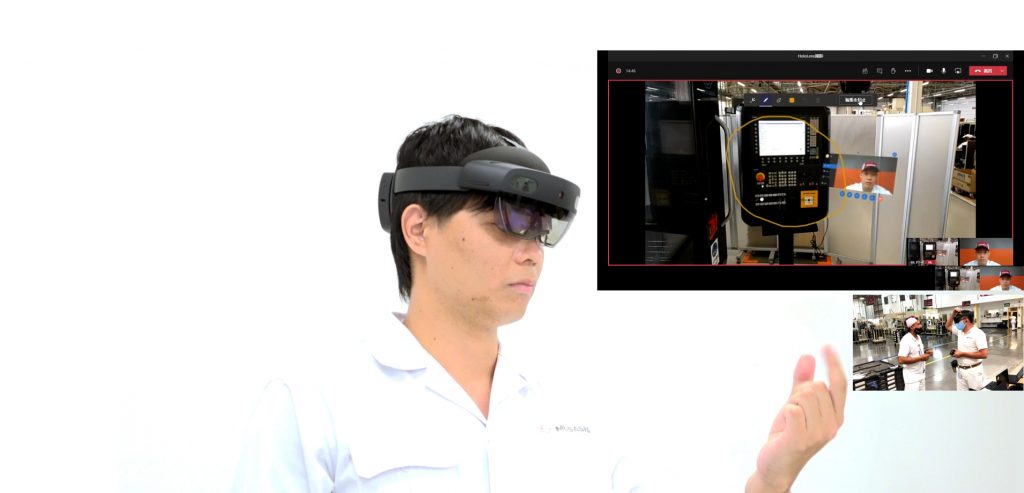Regardless of industry, digital transformation and adoption of digital tools at scale are among the most strategic decisions any organization can make and can have lasting impact on business outcomes. At the same time, digital technology must be the servant of business outcomes, allowing organizations to realize efficiencies across their business, harness data to deliver differentiated customer experiences, make collaboration seamless wherever employees are located and thwart emerging security threats. This is the foundation of co-innovation with our customers and partners, and how we work together to ensure their digital strategy is aligned to business outcomes and delivers measurable value.
During Microsoft’s What’s Next for Industry event in February, customers — including BlackRock, Team Rubicon, Walgreens Boots Alliance, Novartis, U.S. Department of Veterans Affairs and Johnson Controls — discuss their experiences partnering with Microsoft and how it has built a foundation for future resiliency.
This past quarter we introduced Microsoft Viva, an employee experience platform that helps people thrive at work through a single, integrated experience powered by Microsoft 365 and Microsoft Teams. At the launch, Coca-Cola and Unilever shared how they are shaping the employee experience to drive well-being, engagement and learning while driving business success during the shift to remote and hybrid work. At our What’s Next for Industry event, we launched industry-specific cloud solutions with security, privacy and compliance built in: Microsoft Cloud for Financial Services, Microsoft Cloud for Manufacturing and Microsoft Cloud for Nonprofit. We also announced the first update to the Microsoft Cloud for Healthcare and public preview timing for the Microsoft Cloud for Retail. As a digital partner of choice, we are committed to helping our customers find greater resiliency and agility during a time of shifting industry contexts and challenges.
During Microsoft Ignite in March (and through green screen magic), customers Apollo Hospitals, Ørsted, BMW, FedEx and Coca-Cola discuss aligning their digital transformation strategy with business outcomes to deliver measurable value.
At Microsoft Ignite, CEO Satya Nadella detailed the attributes of next-generation cloud innovation and their impact on organizations and society. We also announced Microsoft Mesh, a mixed reality platform that enables shared and interactive experiences anywhere, as well as initial collaborations with Niantic and OceanX. Via virtual visits during the event, I also met with several customers — Apollo Hospitals, Ørsted, BMW, FedEx and Coca-Cola — to discuss their digital journey and our partnership.
This past quarter, we saw customers drive business transformation through broad adoption of technology. For example, we shared how we are working with Cruise and General Motors to accelerate the commercialization of self-driving vehicles and with Volkswagen Group to develop a cloud-based platform to deliver automated driving experiences at global scale. Likewise, in biomedicine, we are accelerating innovations through the Terra platform and, in partnership with Accenture, we announced a collaboration with Kaiser Permanente to improve its cloud capabilities and support its members and clinicians. We are also building a more sustainable future with customers, including NatWest Group, Repsol, Total, Schlumberger and Chevron, and our acquisition of The Marsden Group will further enhance Microsoft’s ability to deliver digital initiatives faster.
Progressive gives voice to Flo’s chatbot, and it’s as no-nonsense and reassuring as she is.
In financial services, we are helping connect organizations to their customers, employees and data to drive transformation at scale. Netherlands-based ABN AMRO is digitizing operations across our cloud to increase innovation, operational efficiency and enhance employee experiences while Progressive is helping its customers get answers to insurance questions with a personal and interactive brand experience developed on the Microsoft Bot Framework. MSCI is harnessing intelligent insights to develop enhanced investment solutions using next-generation technologies, advanced analytics and big data. In Italy, cloud-native bank illimity is protecting customer data and simplifying compliance by increasing trust in its data and extracting greater value using Azure Purview. Microsoft and Switzerland-based UBS are also co-building cloud solutions that meet strict industry compliance and security standards.
The Association to Prevent Blindness (APEC) in Mexico creates AI algorithms to prevent blindness in newborns.
In healthcare, Mount Sinai in New York is using HoloLens 2 and Dynamics 365 Remote Assist to help surgeons in Uganda share real-time views from the operating room and collaborate on patient recommendations. In Mexico, APEC created an AI-based algorithm to quickly and effectively detect premature blindness in newborns. Apollo Hospitals is making healthcare more accessible in India through its omni-channel healthcare platform, while in the Caribbean, MCS is using the cloud to increase operational efficiency and deliver healthcare information to patients faster. Working with the Ecuadorian public health system, Roche implemented an automated digital solution to process three times as many COVID-19 tests.
Auto parts manufacturer Musashi Seimitsu in Japan installs a production line in Mexico remotely during the COVID-19 travel ban.
In manufacturing, COFCO International is using a unified data platform with Azure Synapse Analytics to analyze its global food chain and forecast future demand. Denmark-based Grundfos is increasing governance across its cloud-based and on-premises data sources, while Musashi Seimitsu launched a new production line in Mexico without a single engineer leaving Japan. Global manufacturer Kohler and kitchen appliance designer Hamilton Beach turned to Microsoft 365 to securely improve global collaboration and agility, and in Ireland, Johnson Controls kept a key product innovation competition between employees going during the pandemic.
The Belgian national passenger railway is increasing efficiency and collaboration.
Across industries, companies are accelerating their adoption of digital capabilities, especially during the pandemic. For example, branded merchandise retailer Lids turned to Dynamics 365 Finance and Dynamics 365 Commerce for greater visibility into its sales and supply chain, while Breville used Dynamics 365 and Power Platform to improve efficiency and gain better insights into its retail supply chain. We partnered with Australia’s Flight Centre as its preferred cloud and productivity platform to support its international digital transformation, and Sabre is building a new marketplace for personalized travel and digital workplace for employees using cloud-based business tools and Surface devices. To prepare for deregulation, the National Railway Company of Belgium is modernizing its workplace and helping frontline employees access real-time information and resources on mobile devices using Teams. Customers including the Slim Foundation, Special Olympics, Government of Nunavut, N.Y. Dept of Environmental Protection also found transformative solutions to meet the demands of a changing world.
Digital transformation is about business transformation, powered by technology. With that in mind, we build partnership-driven, not transaction-driven, relationships with customers to achieve specific outcomes rather than focus on technology for technology’s sake. This approach reflects a commitment to delivering trusted counsel to our customers as we co-develop and co-create innovations tailored to their business needs. I am incredibly grateful to our customers for choosing Microsoft as their technology and business partner, and I look forward to our continued collaboration.
The post How Microsoft cloud technology and co-innovation approach are driving business value for customers across industry appeared first on The Official Microsoft Blog.
Source: The Official Microsoft Blog



